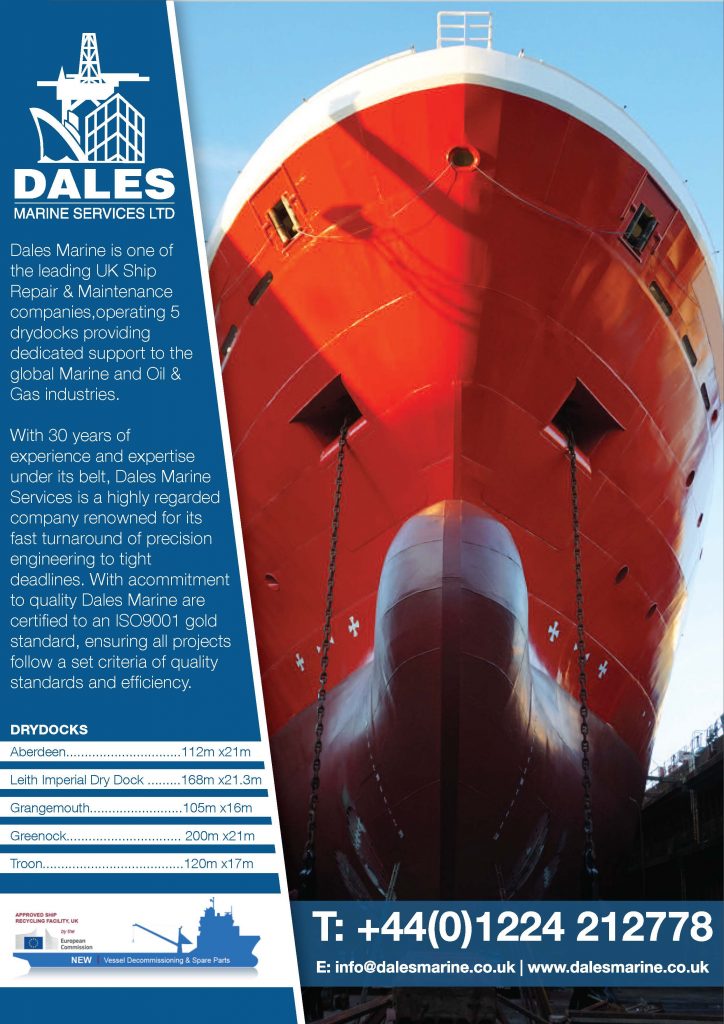If it needs to be carried across water, Agriculture & Energy Carriers (AEC) can probably offer a suitable transportation solution and without having to compromise on quality of logistical support. Having remained focussed on the drybulk sector, AEC has sought to use invaluable investor cash injections to expand and specialise, resulting in the procurement of an incredible fleet of carriers,
“All types of commodities and products are carried in our modern bulk carriers, mainly in Handysizes, Handymaxes and Supramaxes. The AEC fleet consist of modern Eco Bulk Carriers, mainly Japanese built. The standard is always kept high with a constant focus on reliable, first class, efficient, modern shipping services. Integrity is the keyword in AEC’s vision.”
Backed by the best
AEC’s success is not reliant on the significant financial backing that it has been fortunate enough to secure, but it would be churlish to suggest that it hasn’t allowed the company to operate on a higher level than some competitors. Without cash flow concerns, expansion has been a fluid endeavour, with new fleet vessels being purchased as and when necessary, as apposed to only when the coffers would allow and this has lead to excellent profitability and returns on investments. It has also allowed for client relations to take a turn on the spotlight,
“Backed by prominent financial and industry investors, AEC provides advanced shipping solutions with special focus on reliable and efficient customer service, quality performance, professional voyage execution and competitive cost optimisation – all closely linked to our strong close commercial and operational relationships.”
NPG Energy Capital Management is the investment franchise responsible for the fiscal support that AEC has enjoyed and it actually owns the entire AEC group, meaning that it is deeply connected to the results and successes being achieved. Far from simply chasing a profitable bottom line, there is a sense of NPG encouraging increasingly more personal client relationships and, above all else, consistency. Having managed in the region of $13billion of capital since its inception in 1988, NPG was no stranger to commercial success and understanding exactly how it could and should be attained.
An enviable fleet
Naturally, to be able to offer a range of different clients access to the very best drybulk transportation services, a suitably diverse and sizeable fleet is a must. AEC has in no way skimped on this element of operations, having purchased around 25 separate vessels, all built in Japan to exacting global standards,
“AEC owned vessels are all double-hull vessels and are what is called ‘open hatch’ types with box-shaped holds. The double-hull does not only provide increased safety but the designs also allow the interior of the holds to be box-shaped. Box-shaped holds are considerably better for cargoes like steel products, unitised and general cargo. Some cargoes, like wood pulp, paper in reels and aluminium ingots are normally only loaded in box-shaped vessels. Having box-holds and open hatches greatly facilitates the loading and the stowage of such cargoes.”
This assessment of vessel capabilities is key to understanding just how AEC has risen to the top of its industry, as lesser operations may have simply sought to invest in the largest boats available, with little or no consideration of exactly what they would be able to carry. AEC has effectively sidestepped the potential landmine of ignorance and instead, invested in those vessels that would allow for optimum cargo variance and, more importantly, safety. When you understand just how unpredictable the loads being carried are, this becomes entirely business-critical.
From buses to Olivine sand and vital energy products, no two loads, or days, are the same for AEC and in a bid to prove that competencies are being maintained, external assessments are welcome. Just last year, AEC allowed itself to be audited in terms of its capability to transport coal and petroleum coke, with a positive appraisal being the inevitable outcome. This shouldn’t come as a shock, given that AEC was named, in part, because of its special interest in supporting the energy sector, but to be willing to prove continued compliance and commitment is a little unusual.
advertisement

The world is not enough
Headquartered in the Bahamas, with a secondary trading arm in Uruguay, AEC is able to operate across the globe, with professional relationships contributing to the ease with which they can do so,
“AEC is a first class performer and has close relationships with a wide range of ship owners worldwide. AEC charters vessels on a repeat basis from well-respected companies such as Pacific Basin, K-line, NYK, NS United, Polsteam Shipping, Precious Shipping, Bunge, Bohandymar (Bocimar), CTM and ADM.”
By seeking to expand its fleet through careful chartering, AEC is able to significantly increase its operational footprint, without racking up excessive operational costs. This savvy approach to fleet management, in turn, contributes to the company’s ability to to pass the savings on to bottom line-conscious clients, helping to maintain a certain level of price competitiveness within an often crowded and highly ambitious industry. Every cargo transportation operation has to seek out niche elements and constructive relationships that will offer an edge and as it moves into the future, AEC has turned to cutting edge technology to make its mark.
The future of the industry, now
“On the 1st of August 2011 AEC partnered with Dataloy Systems for shipping software and hardware services. AEC will have access to Dataloy’s shipping systems through a fully online service with an innovative physical hardware setup which meets all of AEC’s needs. In turn, Dataloy will be utilising AEC’s extensive industry knowledge to further develop and improve their systems.”
A mutually beneficial relationship of this nature could be what makes AEC really pull away from the competition and by sharing information with Dataloy, to improve the software of the future, AEC is magnanimously guaranteeing everybody the opportunity to embrace operational smooth sailing.





